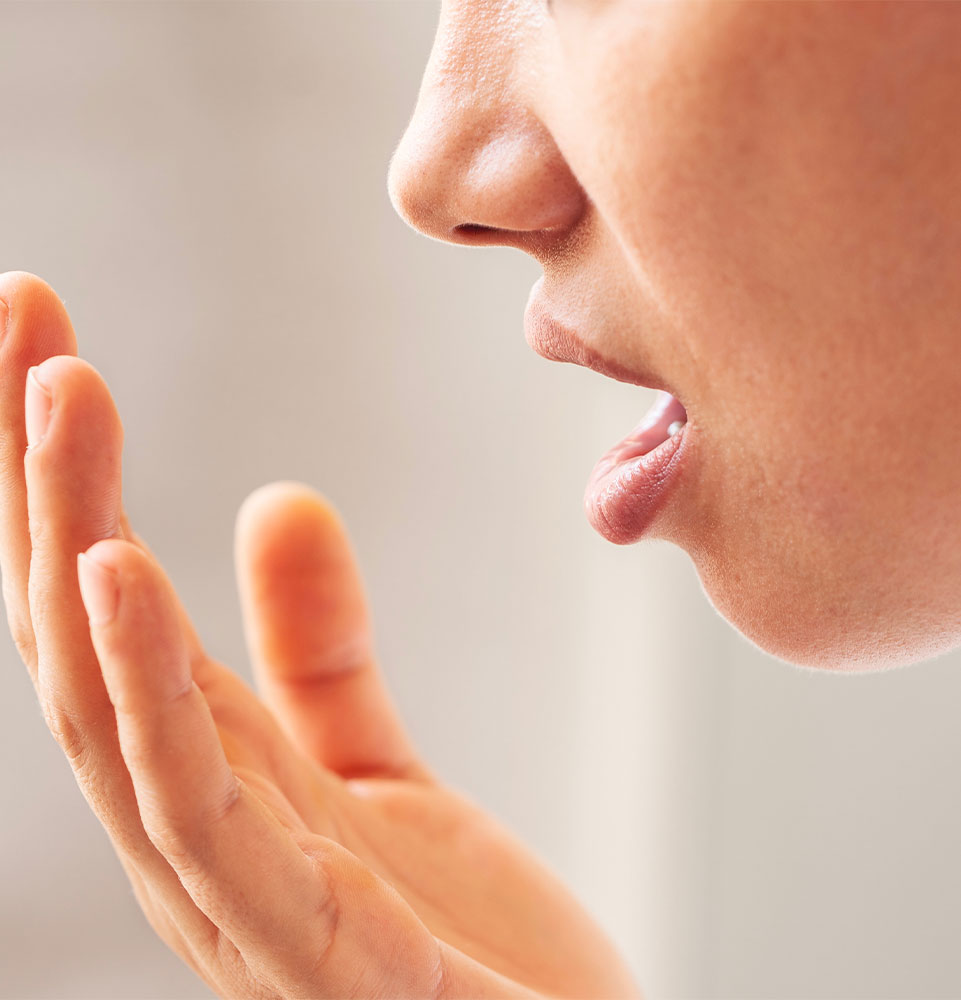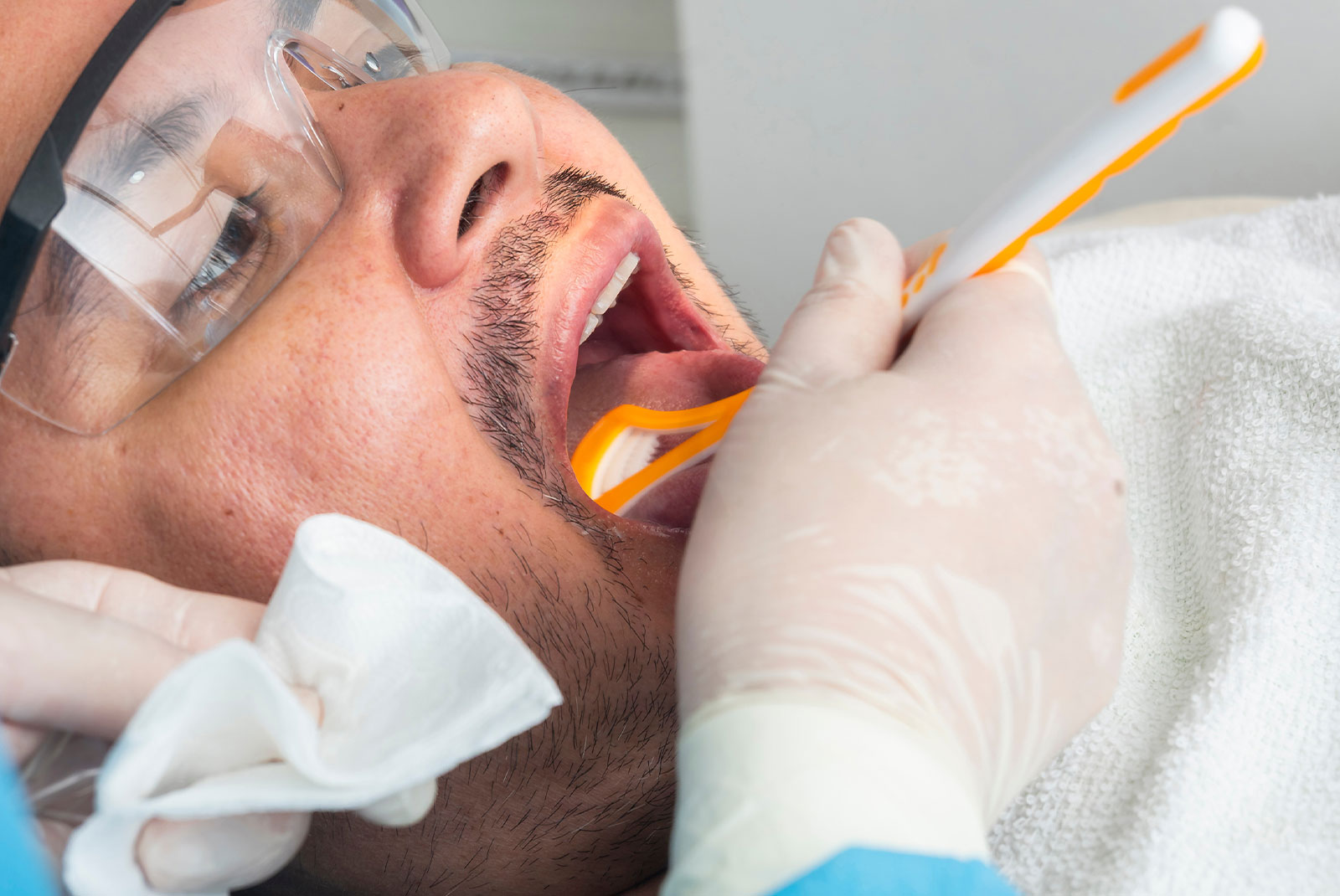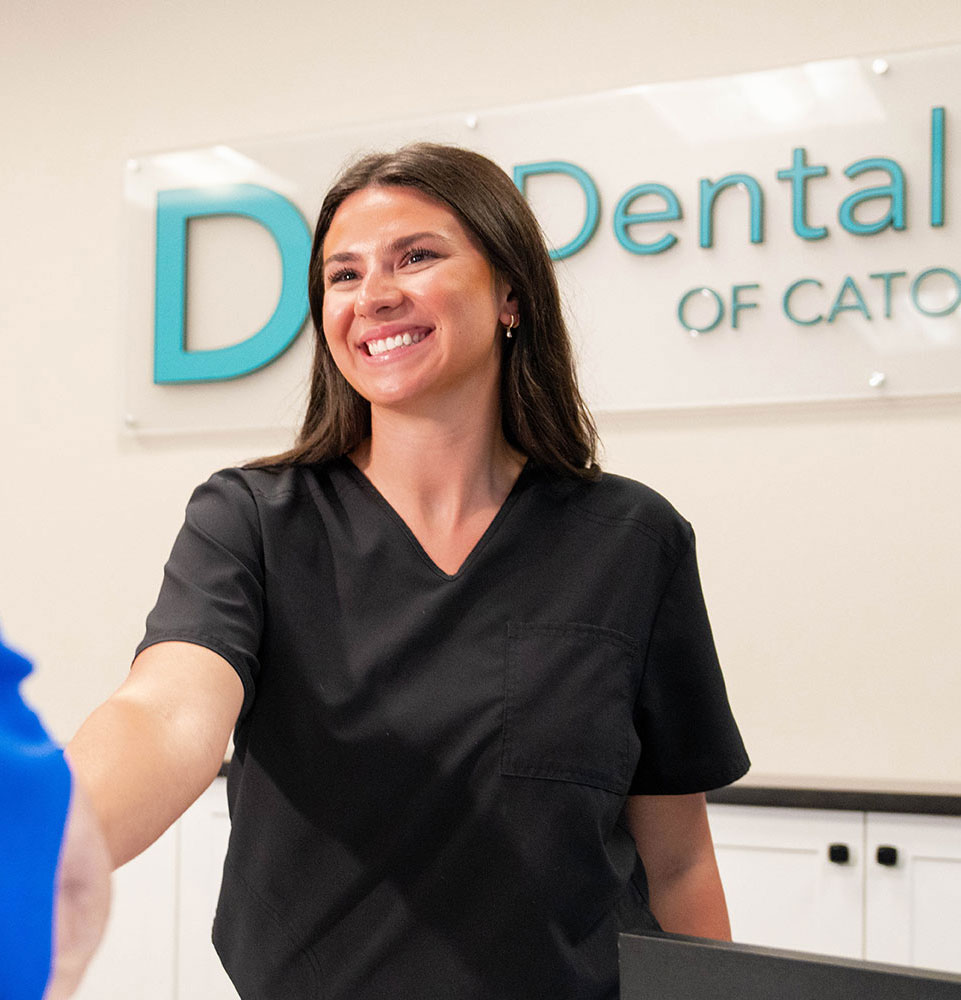Halitosis - Catoosa, OK
Halitosis Treatment IN CATOOSA, OK

Breathe Easy Again: Expert Halitosis Treatment at Dental Arts
Welcome to Dental Art’s comprehensive guide on halitosis treatment, led by Dr. Michaelsen and our dedicated dental team. We understand that bad breath, or halitosis can be a source of embarrassment and discomfort for many individuals.
Rest assured, our practice is equipped with the expertise and resources to address halitosis effectively, helping you achieve fresh breath and renewed confidence. Explore below for valuable information on halitosis causes, treatments, prevention strategies, and how Dental Arts in OK, can assist you in overcoming this common oral health issue.

Understanding Halitosis
Halitosis, commonly known as bad breath, is a multifaceted oral health condition that can have various underlying causes and impacts. While occasional bad breath is normal and often related to consuming certain foods or beverages, persistent or chronic halitosis can indicate more significant oral health issues that require attention. Understanding the complexities of halitosis is essential for effective treatment and management.
Understanding the diverse range of factors that contribute to halitosis is crucial for accurately diagnosing and treating the condition. A comprehensive approach that addresses oral hygiene, dental health, lifestyle factors, systemic health, and any underlying medical conditions is essential for effectively managing halitosis and promoting lasting oral freshness. By partnering with knowledgeable dental professionals and adopting proactive oral care habits, individuals can overcome halitosis and enjoy improved oral health and confidence.
Causes and Risk Factors
Halitosis, commonly known as bad breath, can stem from various causes and risk factors, both oral and systemic, that contribute to foul-smelling breath. Understanding these factors is crucial for effective halitosis treatment and management.
Overall, halitosis is often multifactorial, with several overlapping causes and risk factors contributing to the condition. A comprehensive approach that addresses oral hygiene, dental health, lifestyle factors, systemic health, and any underlying medical conditions is essential for effectively managing halitosis and promoting lasting oral freshness. By addressing these factors in a personalized treatment plan, individuals can overcome halitosis and enjoy improved oral health and confidence.

Signs and Symptoms
Common signs and symptoms of halitosis include persistent foul-smelling breath, a bad taste in the mouth, dry mouth, and a white or yellow coating on the tongue. Individuals with halitosis may also experience a bitter or metallic taste, a burning sensation in the mouth, or a feeling of thick saliva. If you notice these symptoms or have concerns about your breath, it’s important to seek a professional dental evaluation to determine the underlying cause and appropriate treatment.
- Treatment Options: At Dental Arts, we offer comprehensive halitosis treatment options tailored to your specific needs and the underlying cause of your bad breath. Our treatment approach may include:
- Professional Dental Cleanings: Regular cleanings performed by our skilled dental hygienists can remove plaque, tartar, and bacteria from your teeth and gums, addressing one of the primary causes of halitosis.
- Treatment of Oral Health Issues: Addressing underlying dental issues such as gum disease, tooth decay, oral infections, and poorly fitting dental appliances can help eliminate sources of bad breath.
- Improved Oral Hygiene: Our team will guide proper oral hygiene practices, including brushing twice a day with fluoride toothpaste, flossing daily, and using antimicrobial mouth rinses to reduce bacterial growth and odors.
- Treatment of Dry Mouth: If dry mouth is contributing to your halitosis, we may recommend saliva-stimulating products, moisturizing mouth rinses, or addressing underlying causes such as medication side effects.
- Lifestyle Modifications: Quitting smoking or tobacco use, avoiding foods that contribute to bad breath, staying hydrated, and maintaining a balanced diet can all help improve breath odor.
- Management of Systemic Conditions: For individuals with halitosis related to systemic conditions, our team may work in collaboration with other healthcare providers to address underlying health issues and improve breath odor.

Prevention Strategies
Preventing halitosis starts with maintaining good oral hygiene habits and addressing any underlying dental or medical issues that may contribute to bad breath. Regular dental check-ups, professional cleanings, and timely treatment of oral health problems are essential for preventing halitosis. Additionally, practicing proper oral hygiene, staying hydrated, avoiding tobacco use, and following a balanced diet can help reduce the risk of halitosis and promote overall oral health.


Contact Dental Arts
If you’re experiencing chronic bad breath or have concerns about your breath odor, don’t hesitate to contact Dental Arts today. Our experienced dental team, led by Dr. Michaelsen, is dedicated to providing personalized halitosis treatment and compassionate care.Our comprehensive approach to halitosis treatment involves developing a customized care plan tailored to your specific needs and addressing the root causes of your bad breath.
We prioritize open communication, education, and patient empowerment, ensuring that you understand your treatment options and feel comfortable throughout the process.Schedule an appointment with us to receive a thorough evaluation of your oral health and breath concerns. During your visit, we will carefully assess the underlying causes of your halitosis, which may include oral hygiene issues, dental conditions, systemic health factors, medications, or lifestyle habits.
